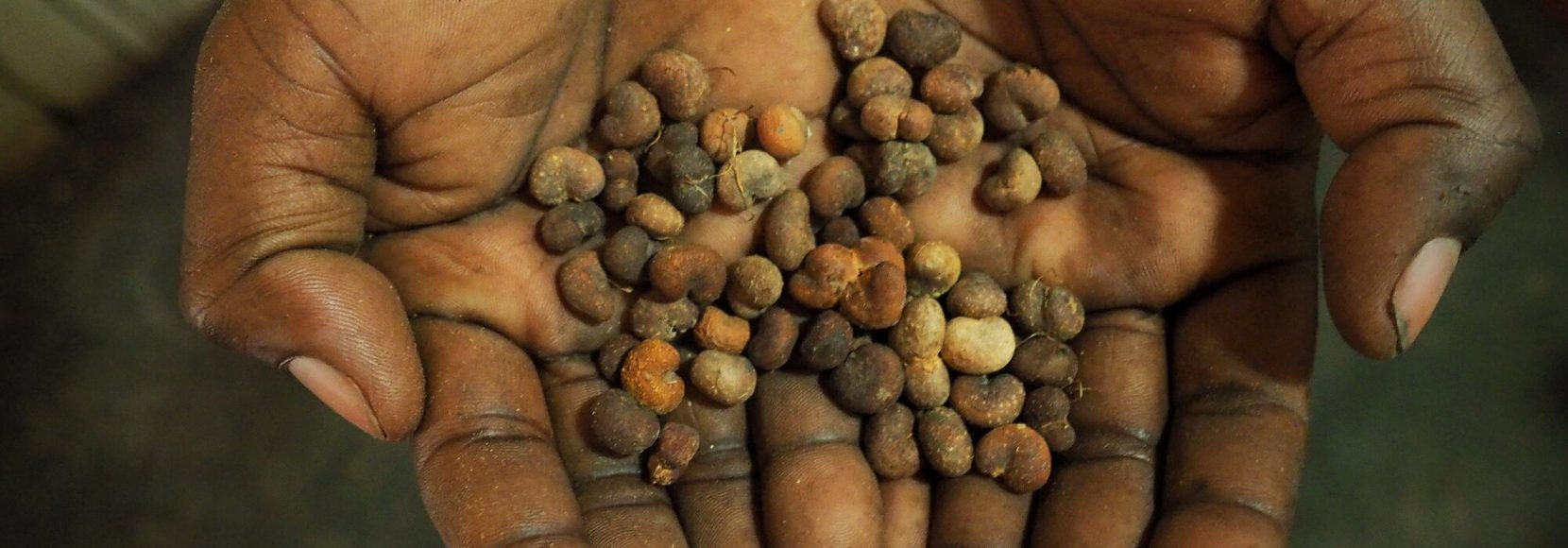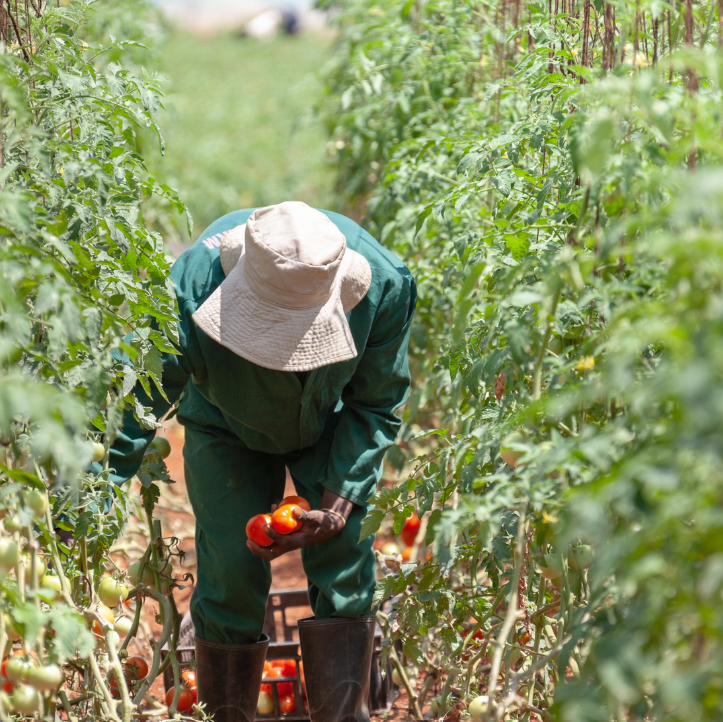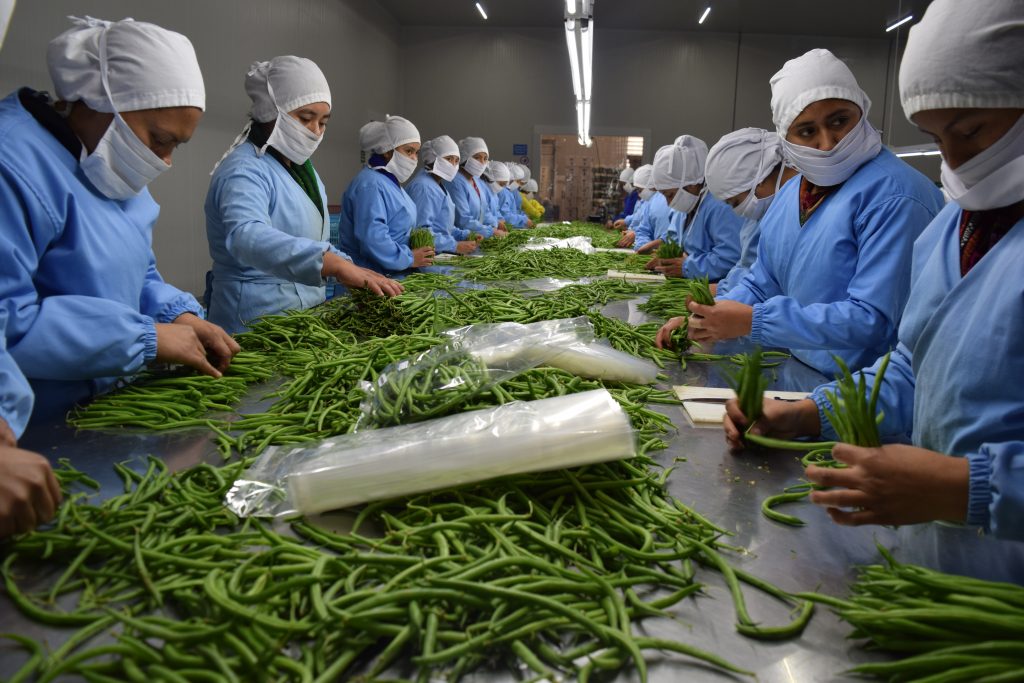
Photo credits: TechnoServe
The Current Impact
The Russian invasion of Ukraine has worsened food insecurity around the world. Nowhere is the crisis more acute than in Africa, where nearly 60% of the population already faced moderate or severe food insecurity, the highest proportion in the world. The cost of food–which already made up roughly 40% of the average African household budget–has climbed a shocking 80% in just two years. And fertilizer prices have increased by 30% since the start of the year, after an 80% surge just the year before. We asked TechnoServe’s three Africa regional directors for their take on the impact on the ground; the outlook for the future; and any potential upsides to the growing food crisis. In this piece, TechnoServe’s three Africa regional directors their take on how the crisis is setting farmers back years, and their concerns about broader hunger and unrest: “There is a lot of tension in the system.”
Smallholder Farmers’ Crop Yields Are Declining

Photo credits: TechnoServe
Pamela:
The most obvious impact is at the farmer level–the farmers have really taken strain. Because we’ve spent years teaching farmers to use fertilizers–many, many years. It’s been a journey to move [them] from not using enhanced seed, not using fertilizers or good agricultural practices, to where we are right now. But as soon as a big shock like this happens, the farmers go right back to the beginning. So we worry that we will see more and more farmers not buying inputs [like fertilizer], and just planting farm-saved seed.
Larry: I basically agree with everything Pamela said. What we see in many of our countries is reduced use of fertilizers. TechnoServe has spent the last 50 years trying to get smallholder farmers to adopt good agronomic practices and use high-quality inputs. And just when we had reached the stage where many of them have started adopting those practices, you then have this issue come up. Mefthe: Where we see the most impact immediately is what Pam mentioned with inputs–supply prices have gone up significantly. They had started going up even before the Ukraine crisis because of COVID, because of the supply chain challenges, and generally global inflation. That’s been a really huge challenge for our farmers. And now the growing increase in prices is going to undo a lot of the work that we and others have done. Cost-Effective Farming Methods Help Farmers Cope Mefthe: Coffee farmers in Ethiopia, for example, [use] completely organic [fertilizer]. It’s partly because the soil the coffee grows in is actually fertile, it doesn’t need additional huge input like in other countries. [See how Ethiopian coffee farmers use regenerative agriculture techniques to boost their yields and incomes.] I think where maybe we see the…big benefits of TechnoServe’s training is actually managing how much input farmers use. So if you look at most of our endline surveys, farmers’ use of inputs–the amount that they used for the land, for the coffee, is reduced. In that sense, they are more protected [from this crisis] than they would have been otherwise. Pamela: We are of course trying everything we can to work with farmers to help them. We’re doing demand aggregation–so that poor farmers buy together. And we’re encouraging, and working with, those that can supply last-mile distribution, just so that we get the fertilizers closer to the farms. And then of course we’re offering advice on good agricultural practices and continuing to encourage farmers to do the practices that we’ve taught them over the years.
Food Processing Companies Struggle with Supply Problem
Larry: We also see this crisis affecting our food processing clients. That’s a very difficult situation for them. At the recent CEO Forum convened by Bill Gates and Aliko Dangote, both of them clearly stated that food processing companies should brace for tougher times. Importation of wheat has been affected, so the flour mills of course cannot have enough wheat that they require. The importation of vegetable oil and other supply chain issues have basically become the main things that these companies have to contend with…So we definitely see a worsening situation. [We are now working on] ways that we can help them to begin to think of creative solutions that can help at least reduce the impact of this crisis on their processing and production.
Hunger and Social Unrest Are Worsening
Larry: I think it is important for us to understand that there was already hunger in the land even before the Ukraine crisis. Many of our countries, especially in West Africa, are faced with serious security challenges, terrorism, banditry. In the 2021 Global Hunger Index, Nigeria ranks 103rd out of 116 countries. With a score of 28.3, Nigeria has a level of hunger that is serious. …Now a year or two later, we now see a situation where there’s increased hunger, increased inflation, increased youth unemployment, and people are really, really starving. So this crisis now exacerbates what was already a very serious crisis. TechnoServe’s Regional Director for West Africa, Larry Umunna, discusses the exacerbation of existing hunger in the region.
Mefthe: In East Africa, we are going through one of the worst famines because of the climate changing, etc. We have a million-plus people needing food aid in Ethiopia, similar numbers in Somalia, and significant numbers in Kenya also. So the impact is quite huge. …In countries that have some level of stability and resilience, like Kenya and Uganda for example, the challenge will be coming…but probably growing really slowly. Hopefully they can weather the storm without getting into a huge crisis. TechnoServe’s Regional Director for East Africa, Mefthe Tadesse, discusses the social unrest and instability in the region.But if you think of places like Ethiopia and DRC, where there is still social unrest and instability in the country generally, the seriousness of this crisis is going to be huge…I do expect a lot of social unrest in many of our countries, because on top of all this we have a huge [number of] unemployed youth who don’t have the patience to wait for longer to have their lives changed. Pamela: I’ll add to Mefthe’s point to say that a lot of people are unemployed. There’s something boiling just under the surface because people are unemployed; there’s no money; socially, people are not happy. And now you add to that increased prices–I don’t think it’s going to end well. One other thing I will add is that some of the governments in my region provide inputs for farmers, whether it’s seeds or fertilizers or chemicals. And as [prices for] these go up, obviously the governments are not going to be able to provide them, or they’re going to have to tax the taxpayers more in order to supply those services. So I don’t think it will augur well with those that are [already] experiencing high prices to have higher taxes–and it will not augur well for the populace to have no inputs. So whichever way you look at it, there is a lot of tension in the system, whether socially or politically.
This article was originally published by TechnoServe.

